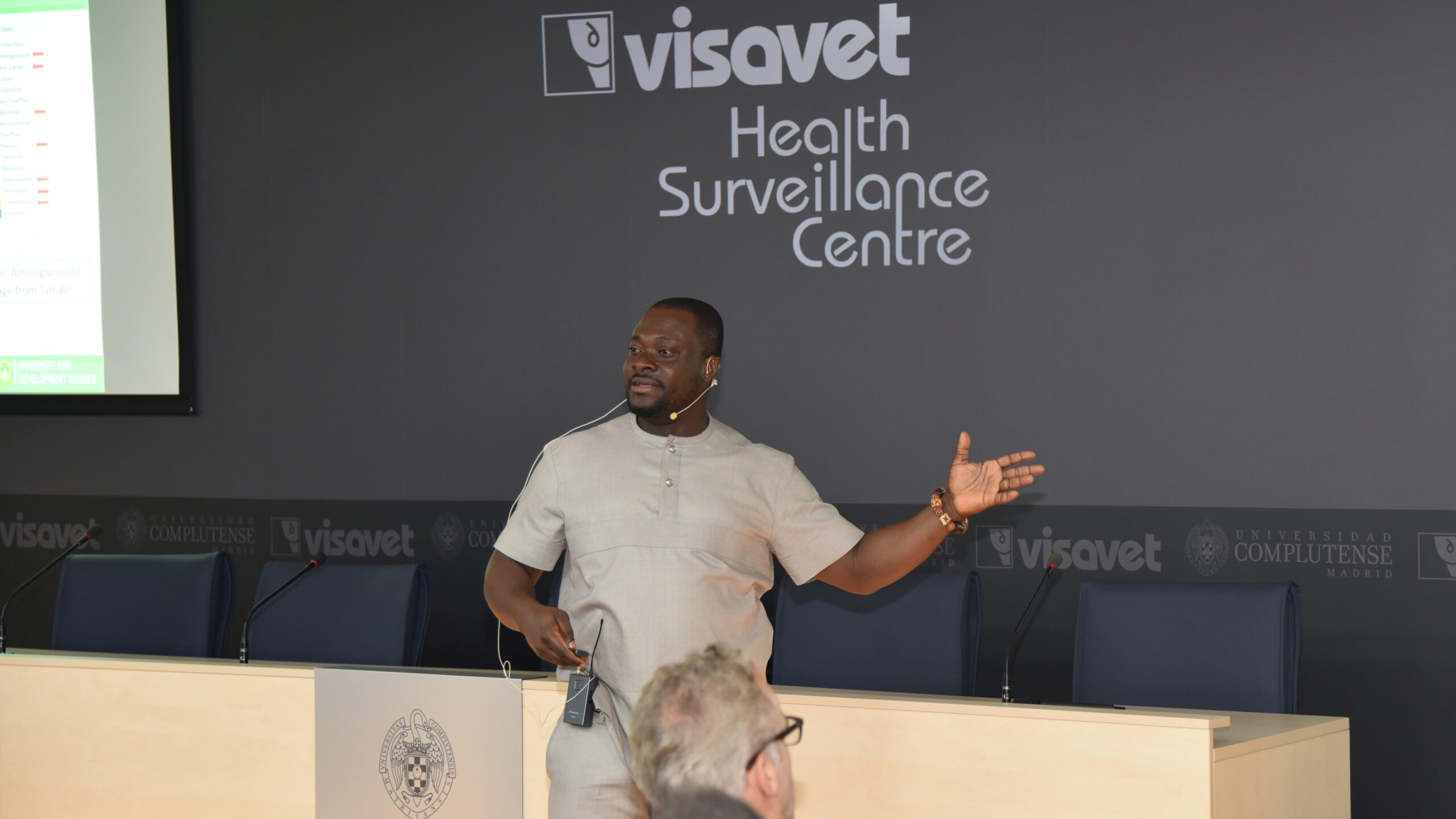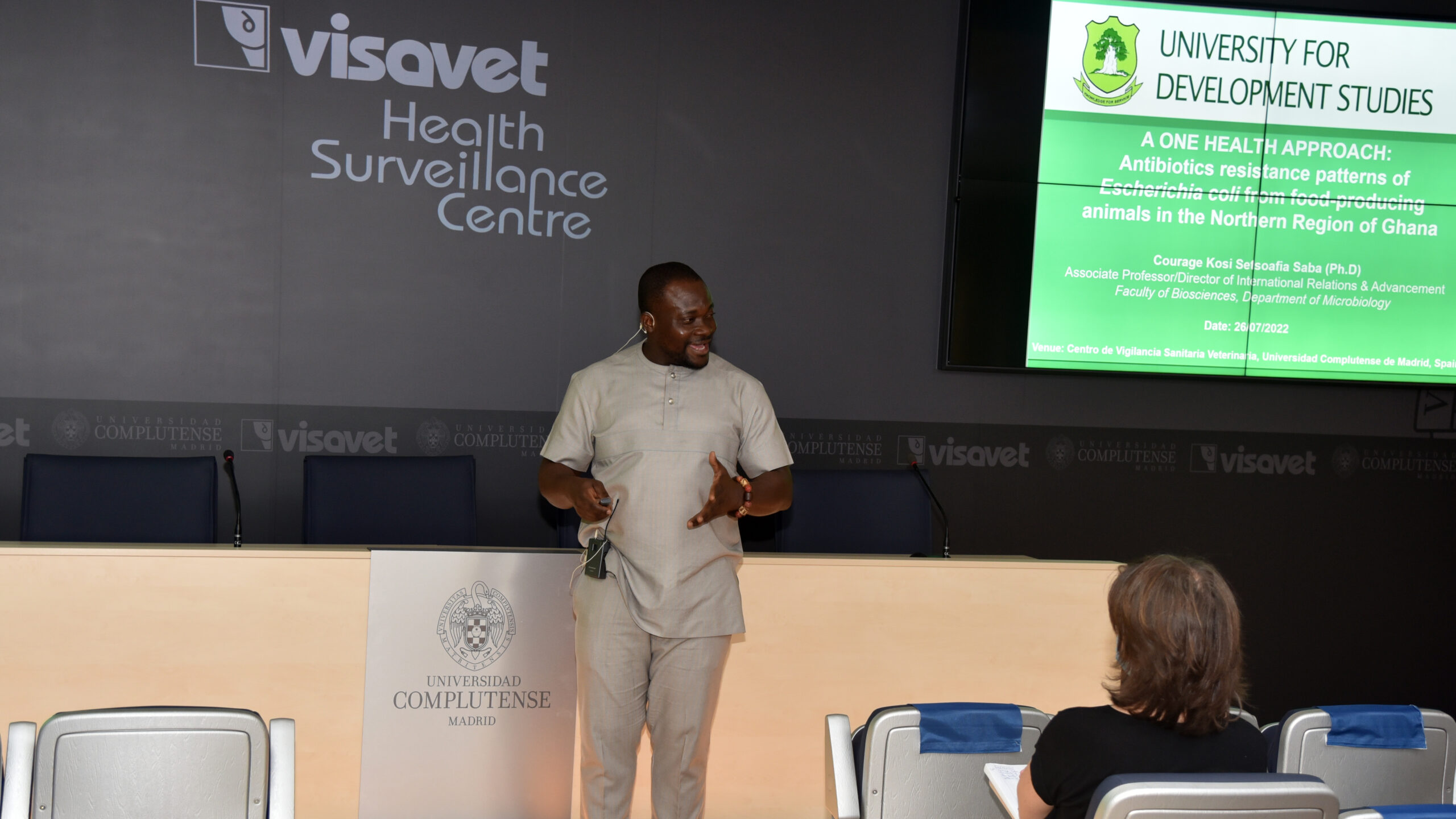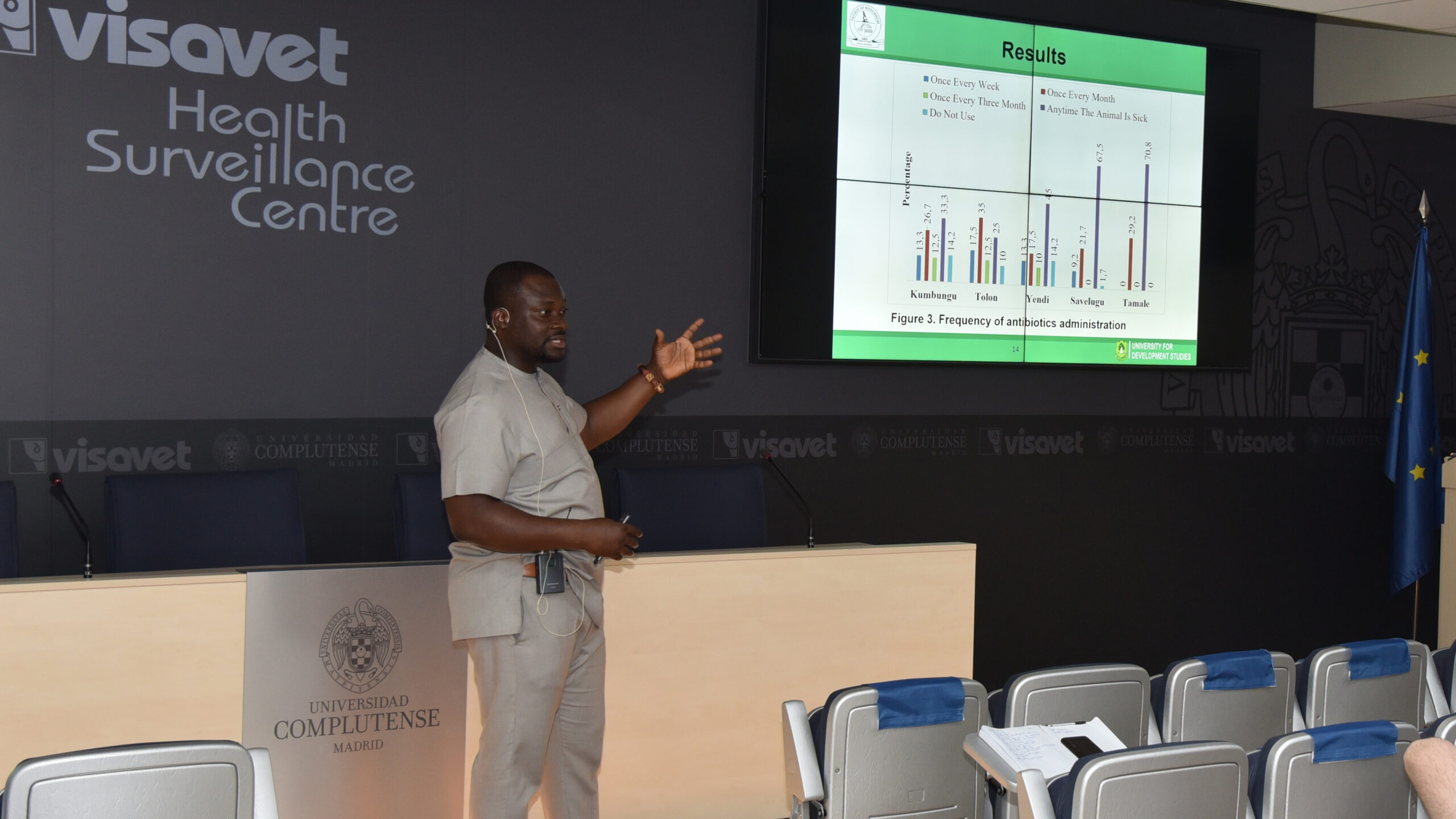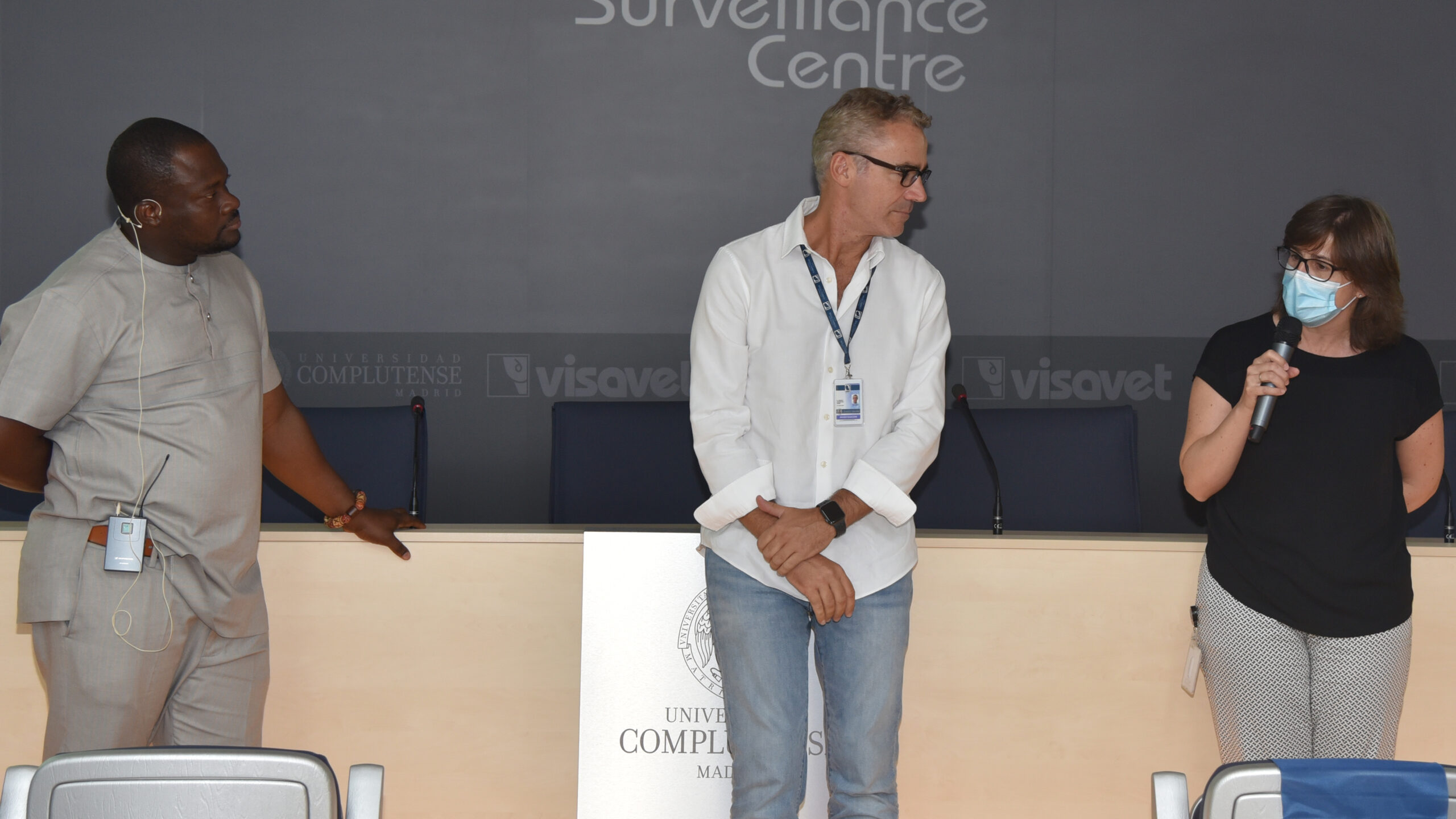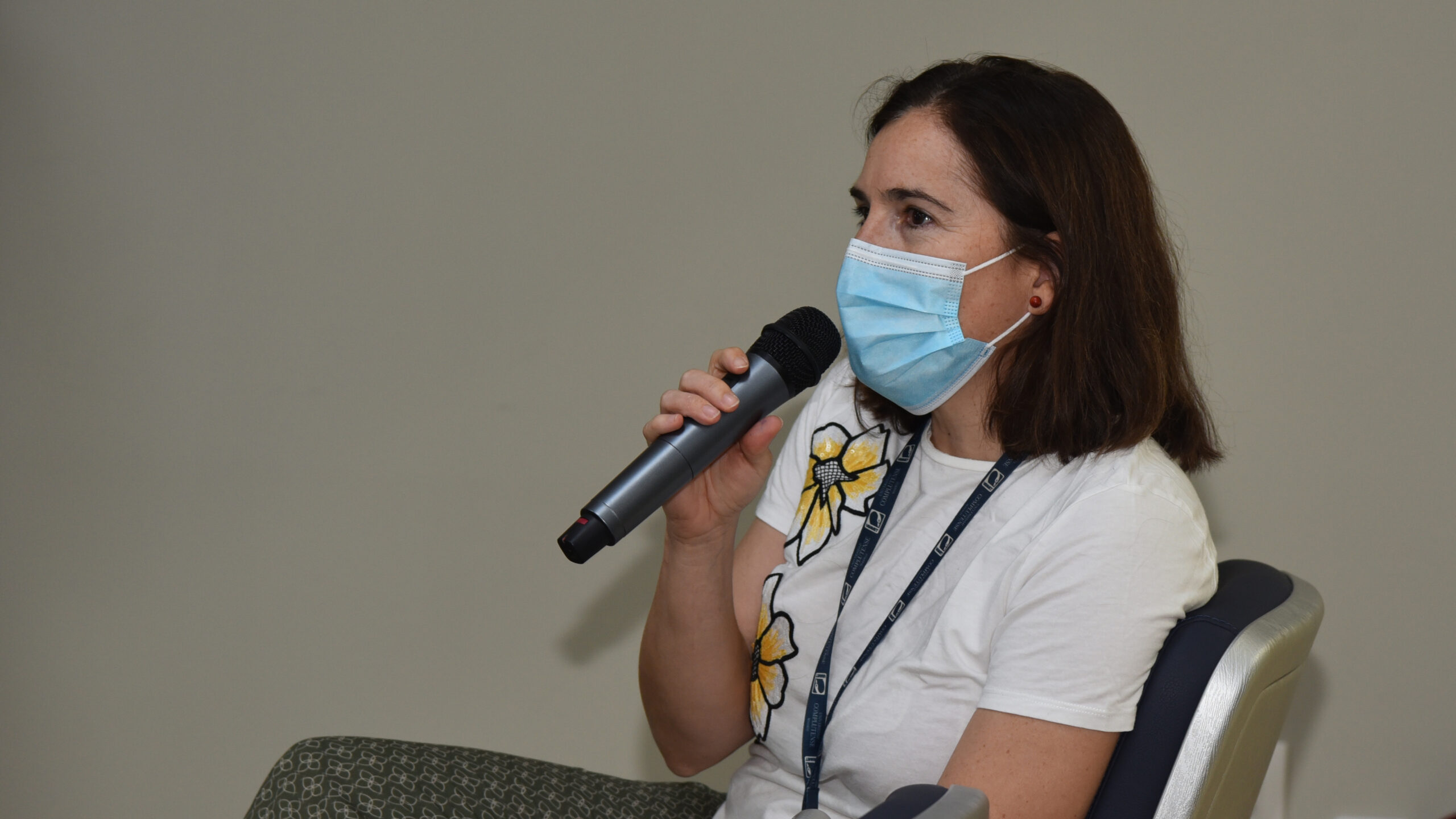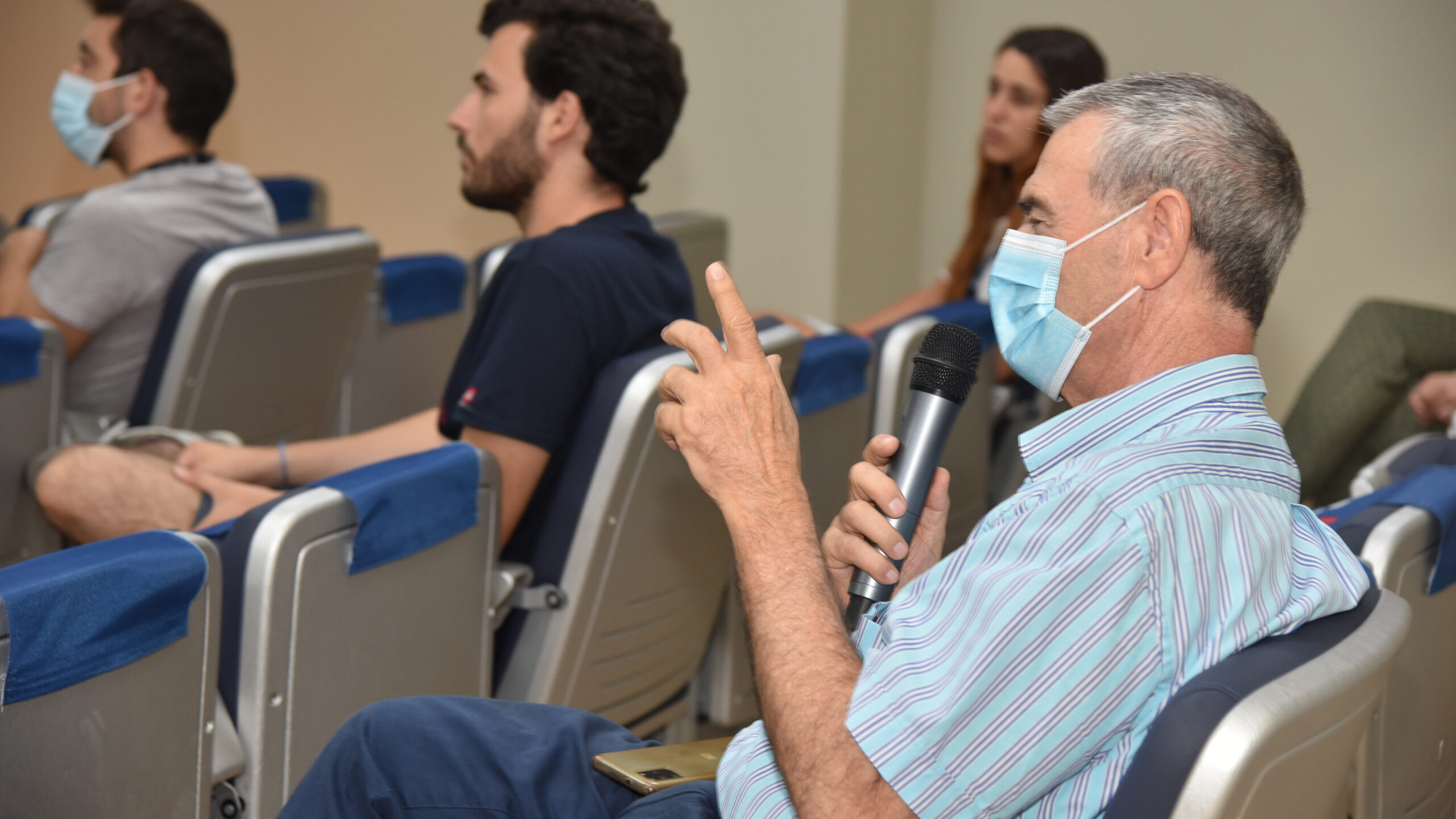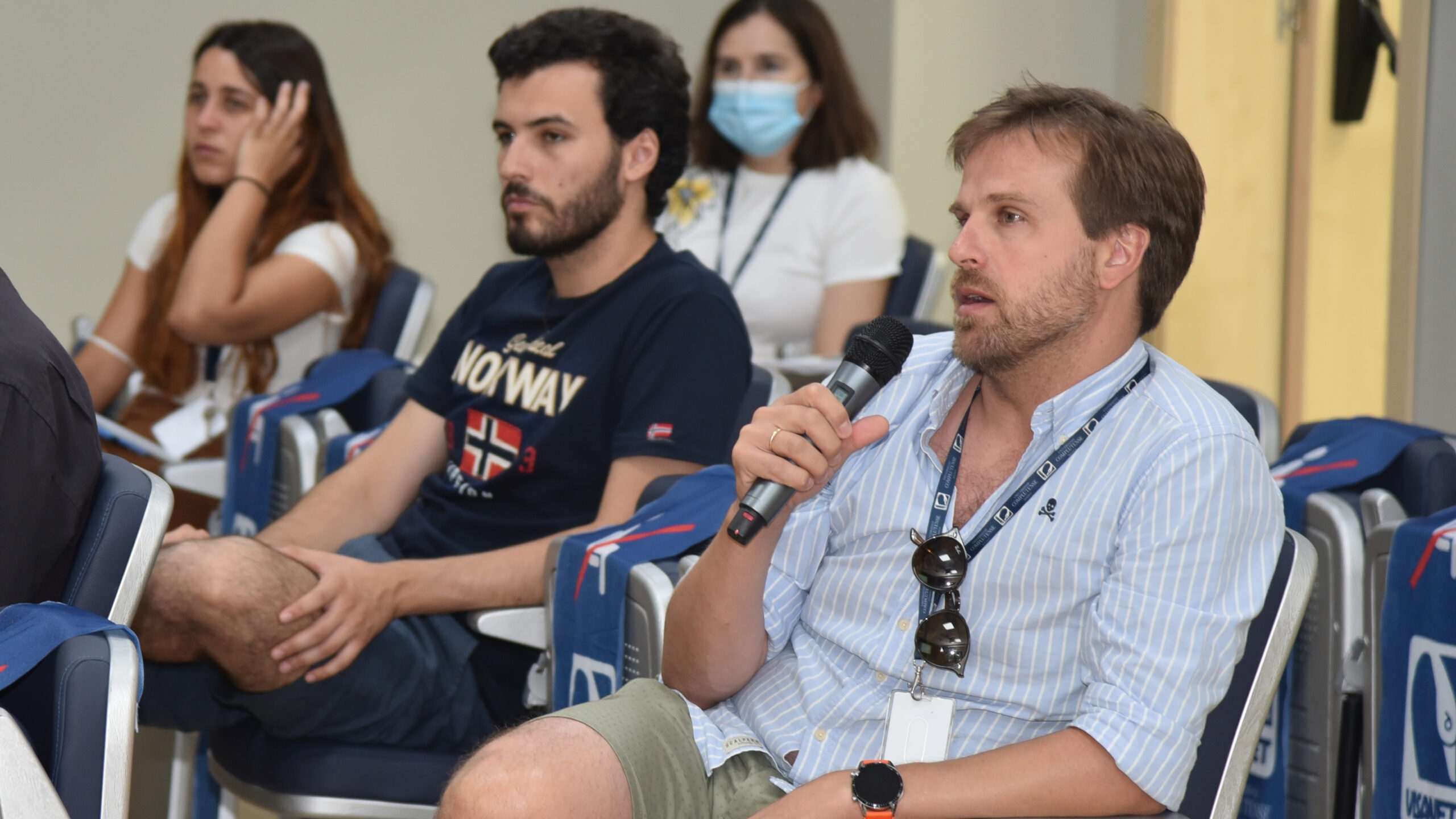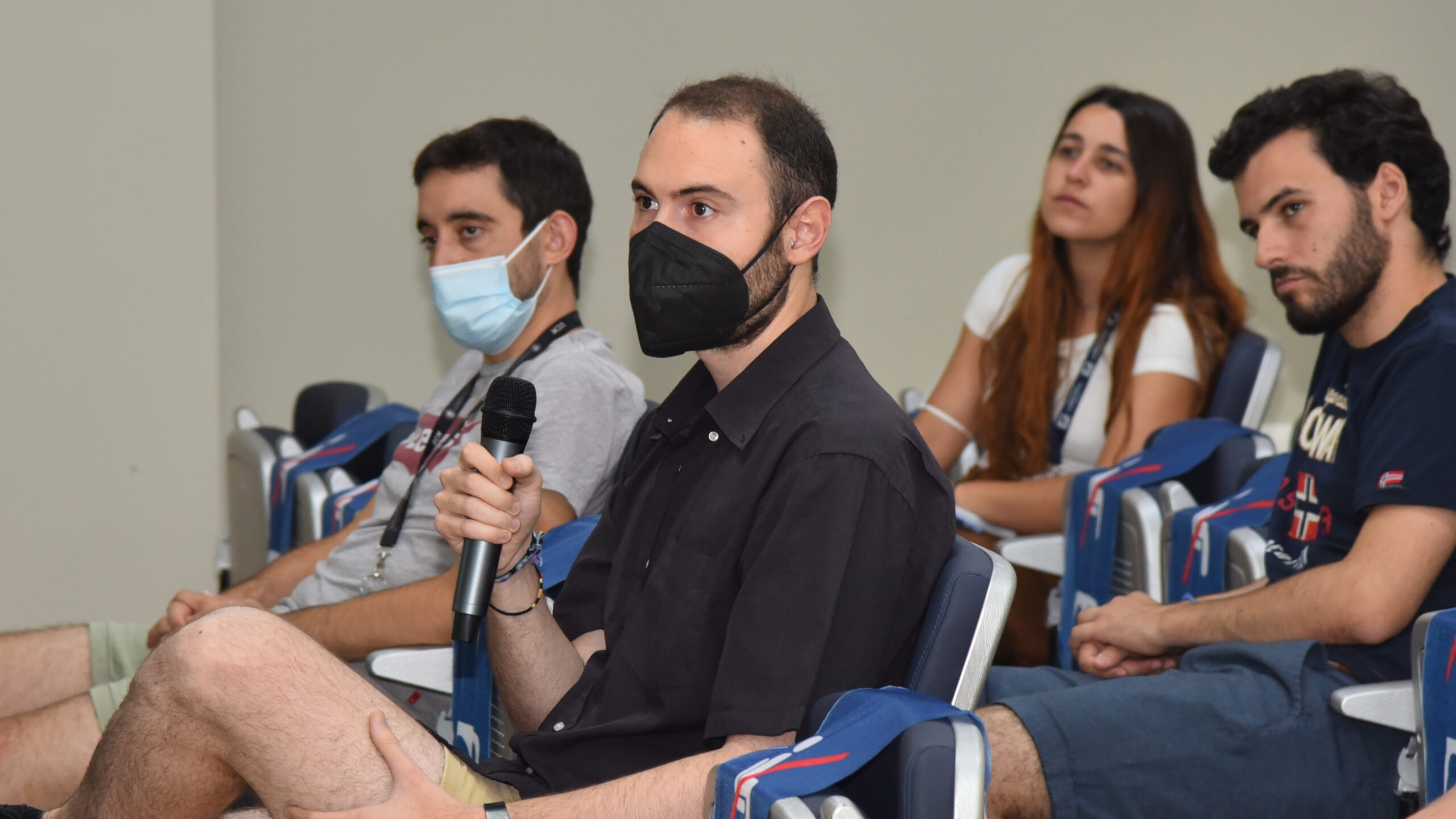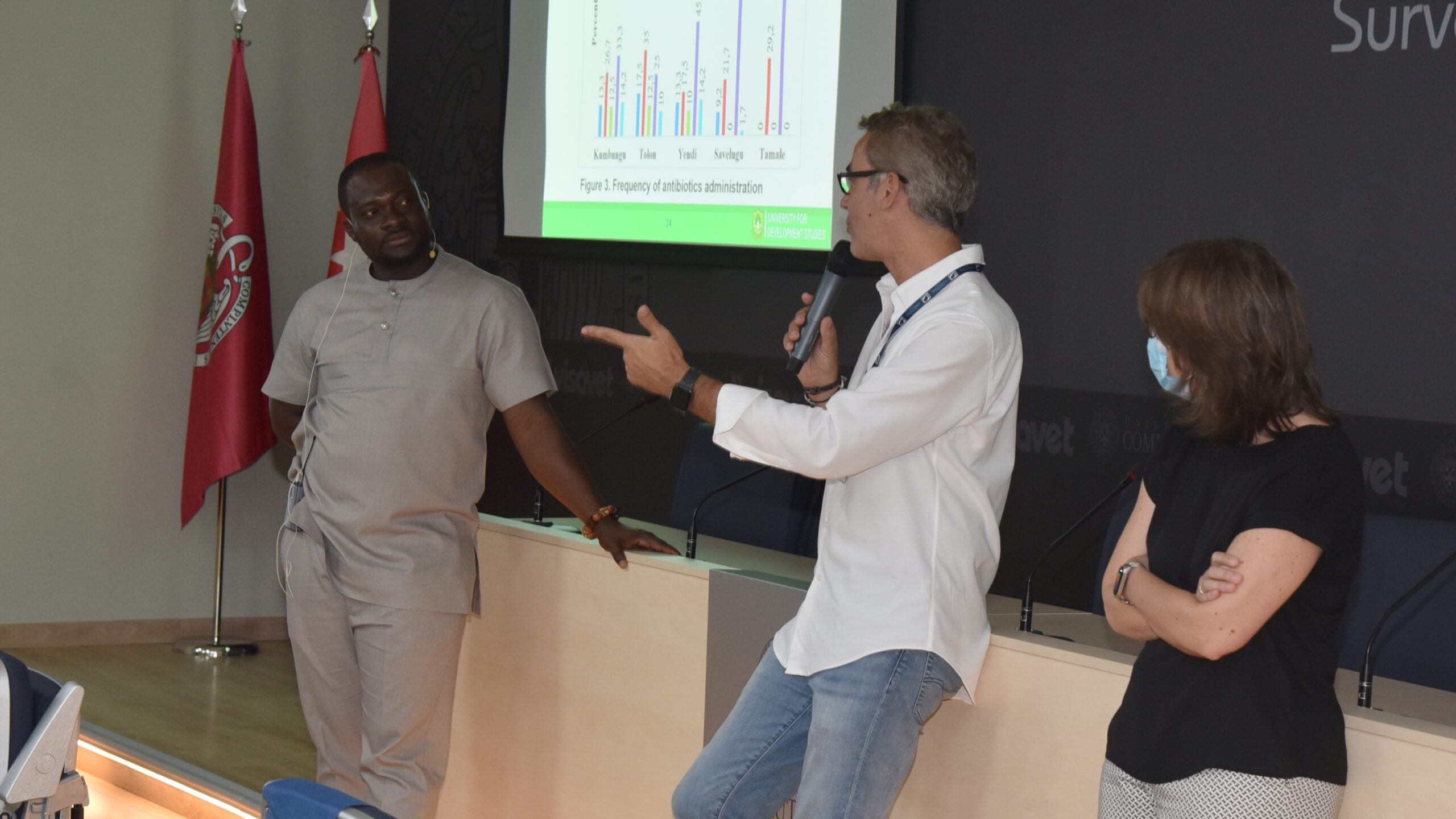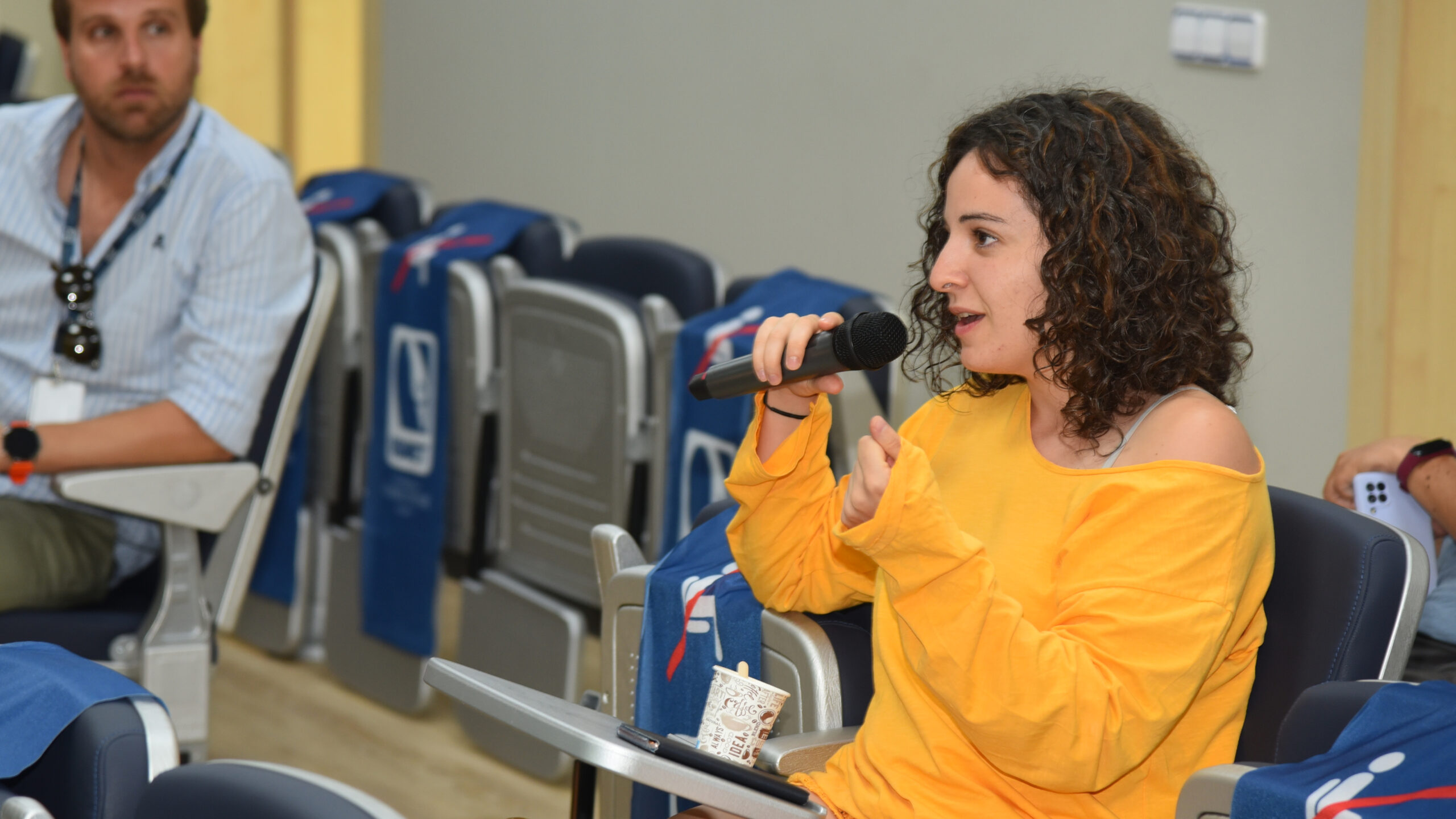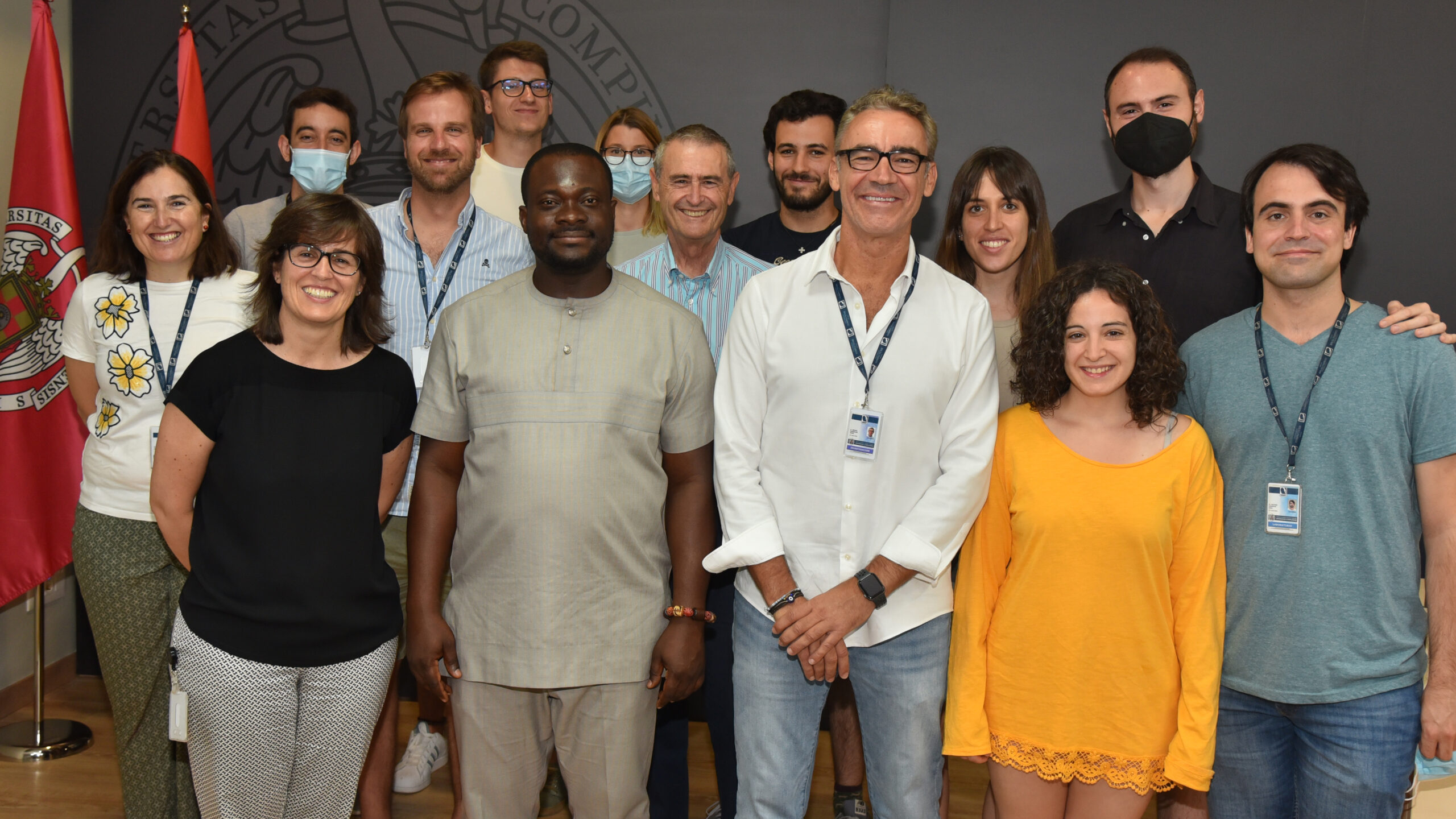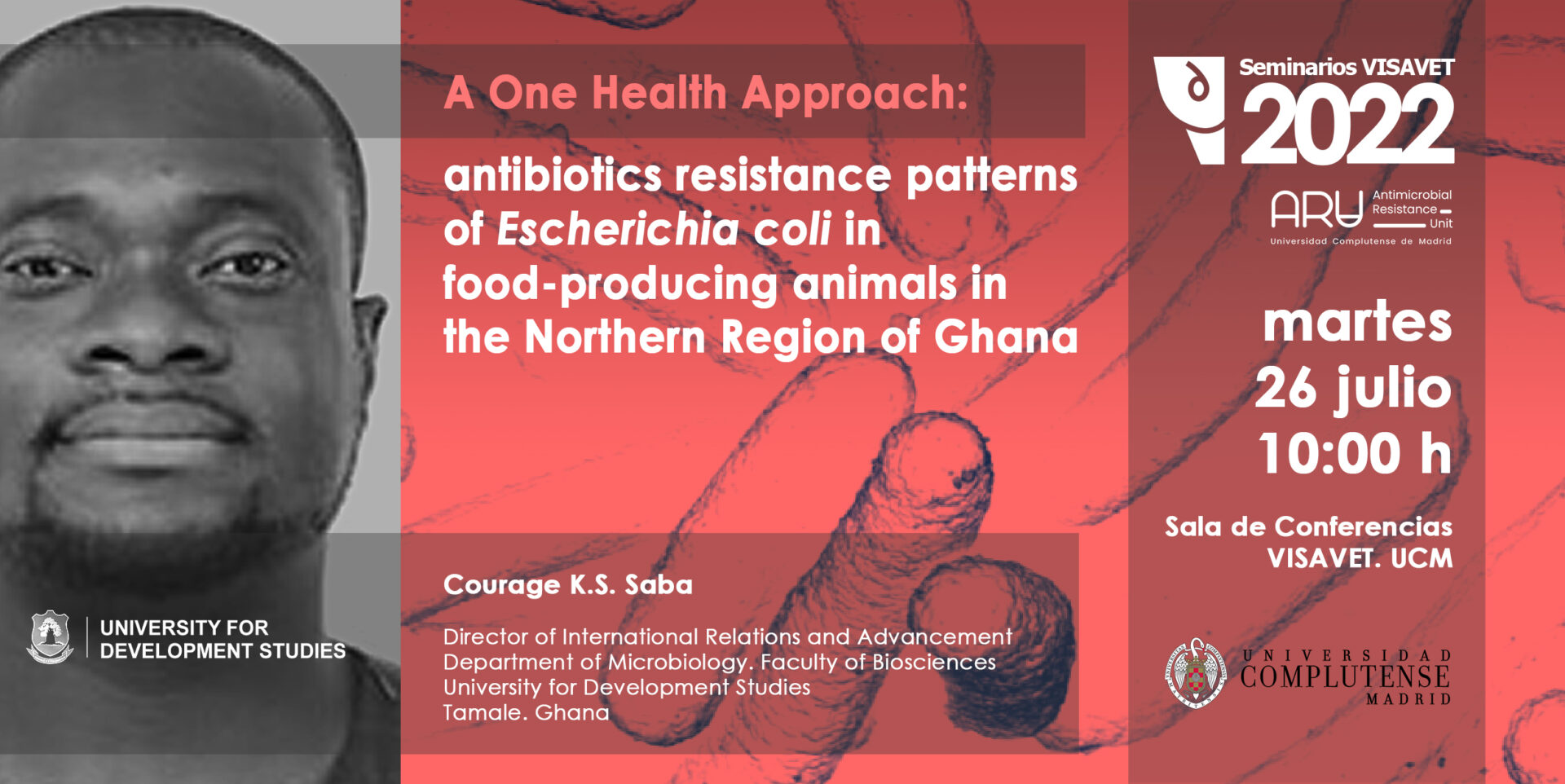
Prof. Saba – A One Health Approach: antibiotics resistance patterns of Escherichia coli in food-producing animals in the Northern Region of Ghana
- The Director of International Relations and Advancement of UDS Prof. Courage K. S. Saba on the 26th July, 2022 hosted a Seminar at the Sala de Conferencias of the Universidad Complutense Madrid (UCM).
- Below is as written and published on visavet.es.
The overuse of antibiotics in food animals is leading to increased risk of human illness and increased healthcare costs, with little to no agricultural economic benefit. Animals can serve as mediators, reservoirs and disseminators of resistant bacterial strains and/or Antimicrobial Resistance (AMR) genes. Consequently, imprudent use of antimicrobials in animals may or can eventually result in increased human morbidity, increased human mortality, reduced efficacy of related antibiotics used for human medicine and increased healthcare costs. This project was undertaken in two stages (1) A survey by the administration of structured questionnaires in 5 districts (Tolon and Kumbungu Districts, Savelugu and Yendi Municipalities and the Tamale Metropolis) of the Northern region of Ghana and (2) A clinical study on the resistance of E. coli isolated from faeces of poultry, cattle, goats, sheep and pigs in the same 5 districts of the Northern region of Ghana.
For the survey work, structured questionnaires were administered directly to 120 farmers keeping animals for food in each of the 5 districts, making the total sample size 600 farmers interviewed. Results were presented in percentages using tables and descriptive statistics. For the clinical research, Cary-Blair transport media were used to pick faeces from animals and Escherichia coli were isolated using Chromagar E. coli agar from the faecal samples of poultry, goats, sheep, pigs and cattle from the same 5 districts of the Northern Region of Ghana. Their antibiotic drug-resistance patterns were determined using the EUCAST guidelines. A total of 580 feacal samples were taken from poultry (160/580), goats (105/580), sheep (105/580), pigs (105/580) and cattle (105/580). Antibiotics used for the susceptibility testing were tetracycline; doxycycline, ciprofloxacin, gentamicin, ceftazidime and the results were interpreted using both the EUCAST and CLSI breakpoints.
All the respondents (120/120-100%) in the Tamale metropolis use antibiotics, 103 (85.8%) in the Kumbungu district use antibiotics, 118 (98.3%) of the respondents in Savelugu use of antibiotics, 110 (91.6%) of the respondents in Yendi district use antibiotics whilst 104 (86.6%) of them use antibiotics in Tolon district. respondents use the antibiotics for the treatment of various infections resulting into pneumonia, enteritis, mastitis, gastrointestinal, respiratory and any urinary infections in diseased animals. The overall usage of antibiotics in food producing animals among the population samples was 92.5% (555/600). The antibiotics most commonly used were penicillin, amoxicillin, tetracycline and ampicillin. The percentage of farmers who administer antibiotics when animals are sick are; Kumbungu (33.3%), Yendi (45%) Savelugu (47.5%), Tolon (35%) and Tamale (70.8%), of which most are self-prescribed.
A total of 565 (97.4%) E. coil isolates were confirmed from the 580 feacal samples taken from all the animals with poultry recording 100% (160/160) recovery of E. coli, goats 96% (101/105), sheep 95% (100/105), pigs 97% (102/105) and cattle 97% (102/105). The highest resistance percentages of antibiotics were observed in poultry followed by pigs, sheep, cattle and the least was in goats. Among all the isolates, 13 E coli samples were noted as Multi-drug resistant (MDR: resistance to ≥3 antibiotics) with poultry recording the highest multi-drug resistant strains. The high resistance in poultry could be attributed to the regular vaccination and drug administration regimes in the production of commercial poultry.
Seminar Video
